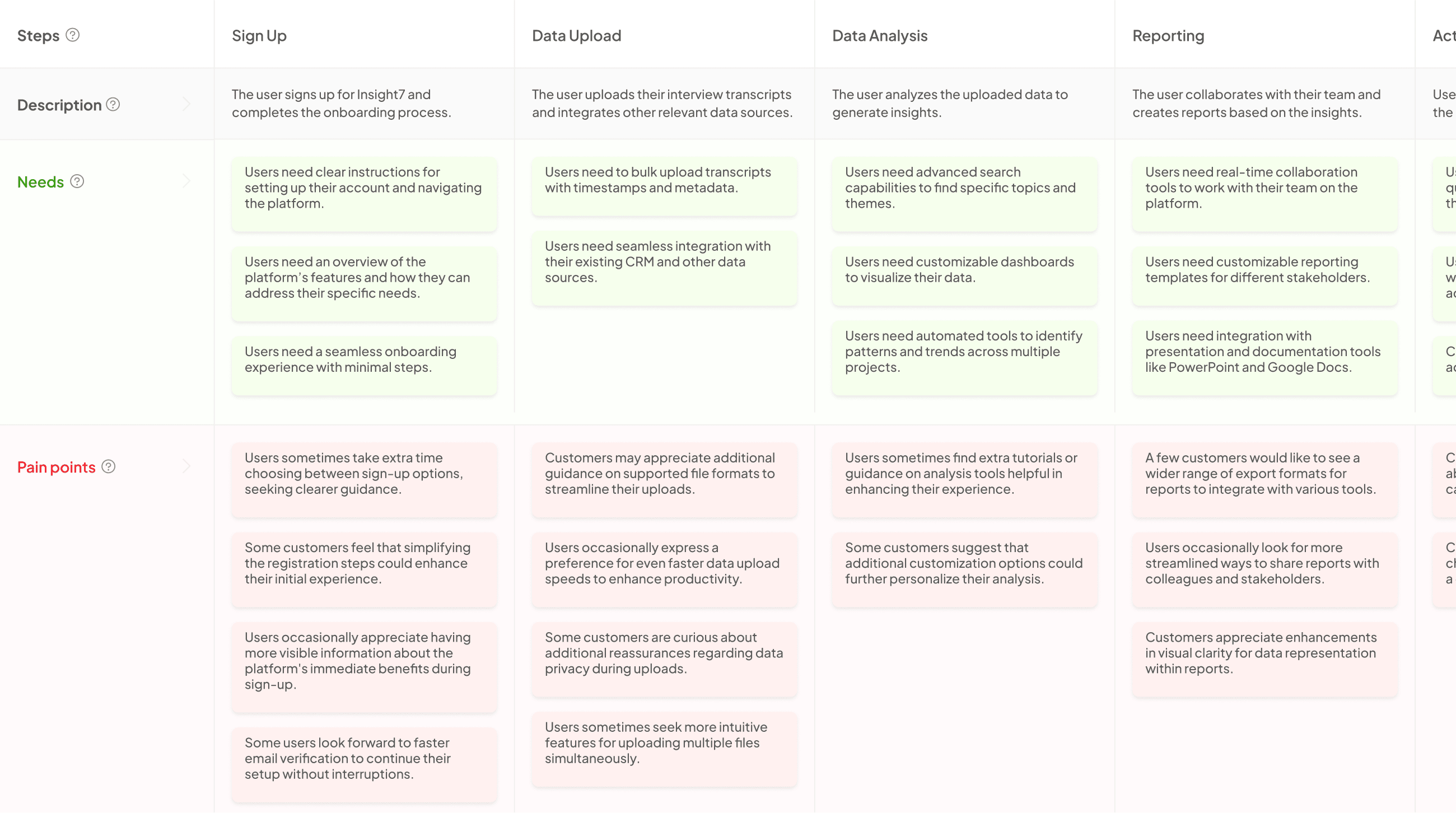5 Must Have Call Center Tools Software in 2025
-
Bella Williams
- 10 min read
5 Must-Have Call Center Tools Software in 2024
In the fast-paced world of customer service, call centers play a pivotal role in ensuring customer satisfaction and loyalty. As we move into 2024, the landscape of call center operations is evolving, driven by advancements in technology and changing customer expectations. To stay competitive, businesses must equip their call centers with the right tools that not only streamline operations but also enhance the overall customer experience. Here are five must-have call center tools for 2024 that can help organizations achieve these goals.
1. Insight7
Insight7 is a powerful interview analysis platform designed to help teams synthesize qualitative data at scale. With its robust capabilities, Insight7 enables call centers to analyze customer interactions, extract actionable insights, and improve service delivery. Here’s how Insight7 can benefit your call center:
- Automated Transcription: Insight7 offers a native transcription service that converts audio and video recordings into text with high accuracy (97-99%). This feature allows call centers to quickly review conversations without the need for manual note-taking.
- Thematic Analysis: The platform can automatically identify themes, pain points, and customer sentiments from transcripts, helping teams understand customer needs and expectations better.
- Customizable Reporting: Insight7 allows users to generate reports that summarize key findings, insights, and recommendations, making it easier to present data to stakeholders.
- Journey Mapping: The tool can create visual representations of customer journeys, highlighting touchpoints and areas for improvement.
- Data Privacy Compliance: Insight7 takes data privacy seriously, ensuring compliance with regulations such as GDPR and SOC2. This is crucial for call centers handling sensitive customer information.
To get started with Insight7, you can sign up here for a free trial and explore its features firsthand.
Generate Journey maps, Mind maps, Bar charts and more from your data in Minutes
2. CallRail
CallRail is a call tracking and analytics tool that helps businesses understand the effectiveness of their marketing campaigns by tracking incoming calls. Key features include:
- Call Recording: CallRail allows users to record calls for quality assurance and training purposes, ensuring that customer interactions meet company standards.
- Call Analytics: The platform provides detailed analytics on call sources, durations, and outcomes, helping teams identify which marketing channels drive the most valuable leads.
- Dynamic Number Insertion: CallRail can dynamically insert tracking numbers on websites, allowing businesses to track calls generated from specific online sources.
3. Zendesk
Zendesk is a customer service software that provides a comprehensive suite of tools for managing customer interactions across multiple channels. Its features include:
- Multi-Channel Support: Zendesk allows call centers to manage customer inquiries via phone, email, chat, and social media from a single platform.
- Ticketing System: The software includes a robust ticketing system that helps teams prioritize and resolve customer issues efficiently.
- Knowledge Base: Zendesk enables businesses to create a self-service knowledge base, allowing customers to find answers to common questions without needing to contact support.
4. Freshdesk
Freshdesk is another popular customer support software that offers a range of features to enhance call center operations. Key functionalities include:
- AI-Powered Chatbots: Freshdesk includes AI chatbots that can handle routine inquiries, freeing up agents to focus on more complex issues.
- Collaboration Tools: The platform provides collaboration features that allow team members to work together on tickets, ensuring a seamless customer experience.
- Reporting and Analytics: Freshdesk offers reporting tools that help managers track team performance and identify areas for improvement.
5. Salesforce Service Cloud
Salesforce Service Cloud is a leading customer service platform that integrates seamlessly with other Salesforce products. Its features include:
- 360-Degree Customer View: Service Cloud provides agents with a complete view of customer interactions, enabling personalized service.
- Automation Tools: The platform includes automation features that streamline repetitive tasks, allowing agents to focus on higher-value activities.
- Integration Capabilities: Salesforce Service Cloud can integrate with various third-party applications, enhancing its functionality and adaptability to different business needs.
Extract insights from Customer & Employee Interviews. At Scale.

Conclusion
As we head into 2024, call centers must leverage the right tools to enhance their operations and meet evolving customer expectations. From automated transcription and thematic analysis with Insight7 to call tracking with CallRail and comprehensive customer support with Zendesk and Freshdesk, these tools are essential for driving efficiency and improving customer satisfaction. By investing in these technologies, businesses can ensure they are well-equipped to navigate the challenges of the modern customer service landscape.







